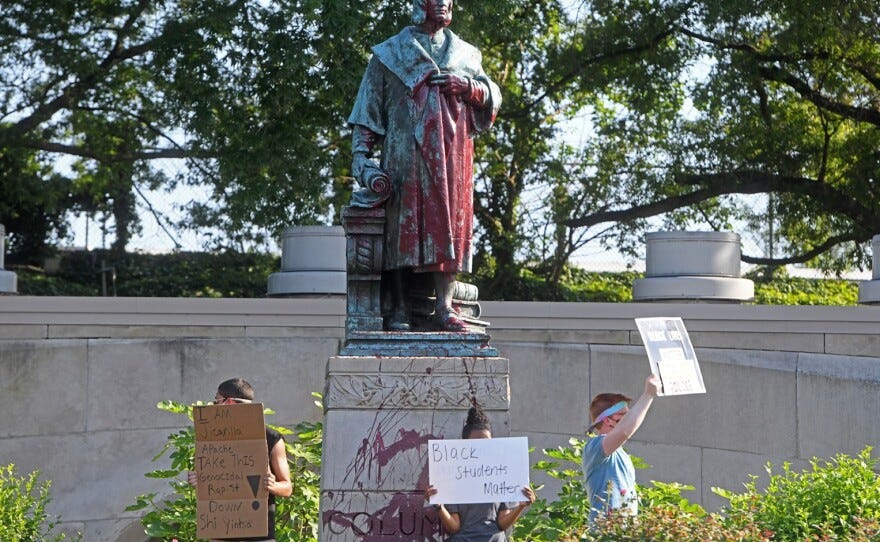Reject the Revisionist Lies of Indigenous Peoples' Day
Today is Columbus Day and once again, the leftist chorus is doing what they do best, rewriting history, twisting facts, and advancing their anti-American pet cause by calling this day "Indigenous People's Day." But before we let them get away with this brazen distortion of reality, let’s take a moment to remember what Columbus Day is actually about and why it matters.
Christopher Columbus’s voyage to the Americas was more than just a monumental historical event—it was actually a turning point for civilization itself. He is often credited with “discovering” America, particularly the United States, but the reality is that he brought the light of Western civilization to a land engulfed in tribal warfare, superstition, and moral darkness.
Christopher Columbus, the Genoese explorer, set sail in 1492 with an aggressive mission. His goal was to find a westward route to the East Indies, and while he didn’t quite land where he expected, his voyage led to something far more important, the opening of the New World to Europe. Columbus’s discovery paved the way for Western civilization—an advanced, society founded on principles of law, order, and progress.
It was no accident that God’s providence guided Columbus’s ships to the shores of the Americas, for it was here that the gospel would eventually be spread, forever changing the life and culture of this new world.
But here’s where we must confront the lie of "Indigenous People's Day." The left loves to paint a rosy picture of Native Americans as peaceful, nature-loving stewards of the land, tragically victimized by the evil white Europeans. This is the narrative being pushed today, but nothing could be further from the truth. In reality, the Americas before Columbus were far from some utopian paradise—they were a war-torn, blood-soaked landscape filled with tribes constantly at war with one another, practicing brutal forms of violence, cannibalism, and idolatry.
In fact, most Native American tribes were far from peaceful. They were engaged in near-constant warfare, raiding and murdering each other with alarming frequency. The Iroquois Confederacy may be the most notable example of this, a coalition of tribes in the northeastern United States. Their infamous Mourning Wars were brutal campaigns aimed at capturing prisoners to replace lost members of their tribe.



